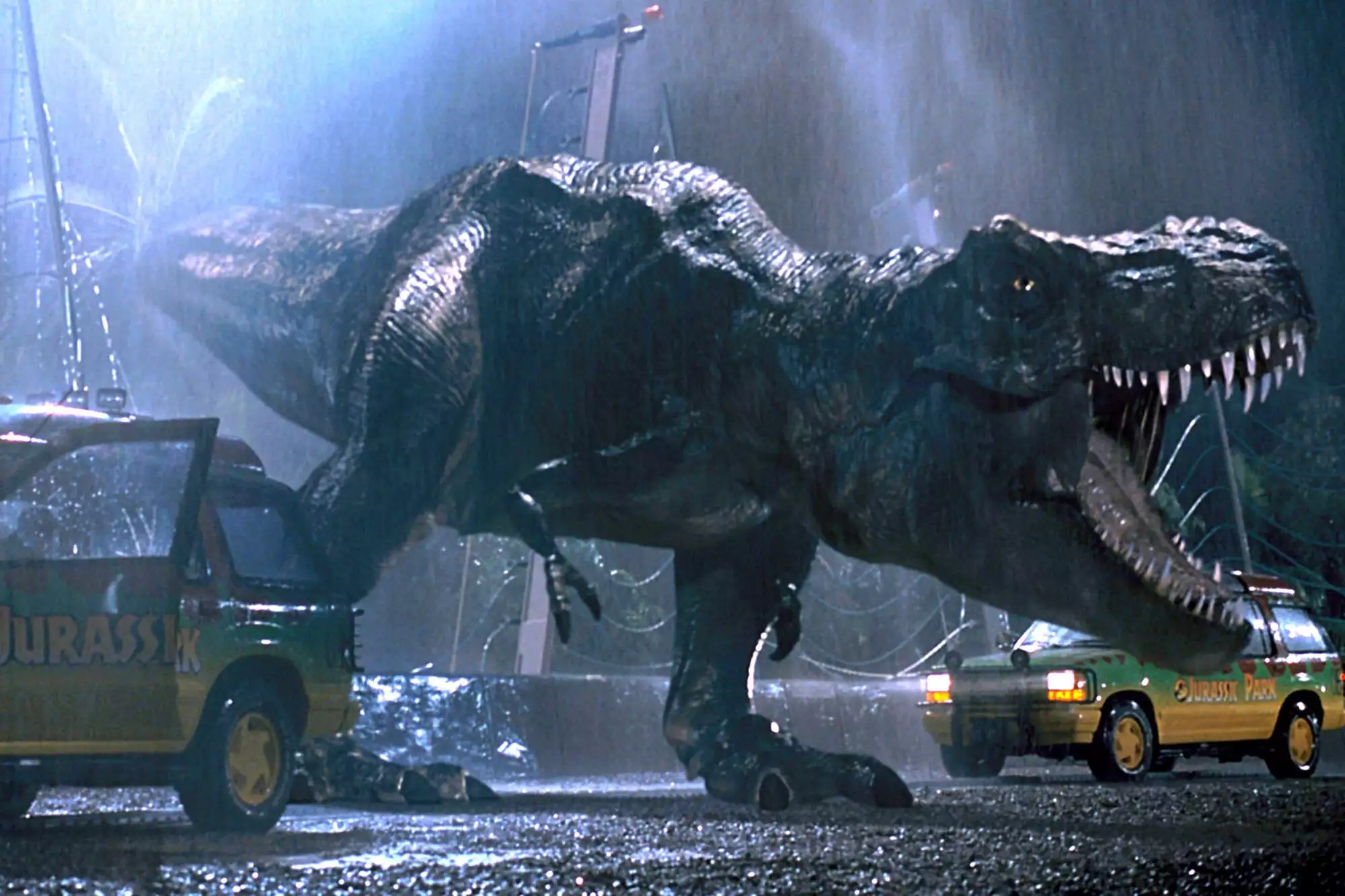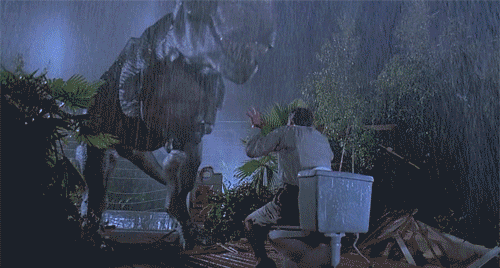

Jurassic Park is a 1993 sci-fi action film, based on the 1991 Michael Crichton novel of the same name. The film follows a group of visitors as they attempt to survive and escape a dinosaur-filled theme park island after corporate sabotage takes out all of the park's power and safety systems.
The movie has themes which critique genetic engineering, capitalism, and the destruction of nature by humanity. Ian Malcolm’s character, particularly, is a mouthpiece for these criticisms – calling out the hubris in believing genetics and nature can be perfectly controlled through human interference, discussing the unpredictability of complex systems with Chaos Theory, and voicing his belief that just because something is possible, does not mean that it should be done; “You were so preoccupied with whether you could, you didn’t stop to think whether you should”. John Hammond’s desire for acclaim blinds him to the potential harm and risks of his endeavour. Donald Gennaro, the lawyer who cares only for the money the park could make, is the first to die as the park shuts down – a failure which is, itself, caused by the capitalistic greed of Dennis Nedry, an employee who sabotages the park on behalf of a rival company in the hopes of a higher payday. Nedry is himself also killed in the park, a victim to his own hubris as he gets lost while attempting to escape.
While the movie's message is not as strong and blatant as the novel's, these themes still form intoits central thesis - that the abuse of scientific power and discovery by corporations in the pursuit of capitalistic greed is dangerous, unethical, and ultimately, leads to downfall. Combining elements of hard science-fiction, horror and action, with its sublime pacing and gradual build to a outstanding crescendo, Jurassic Park has become a true, and timeless, classic.
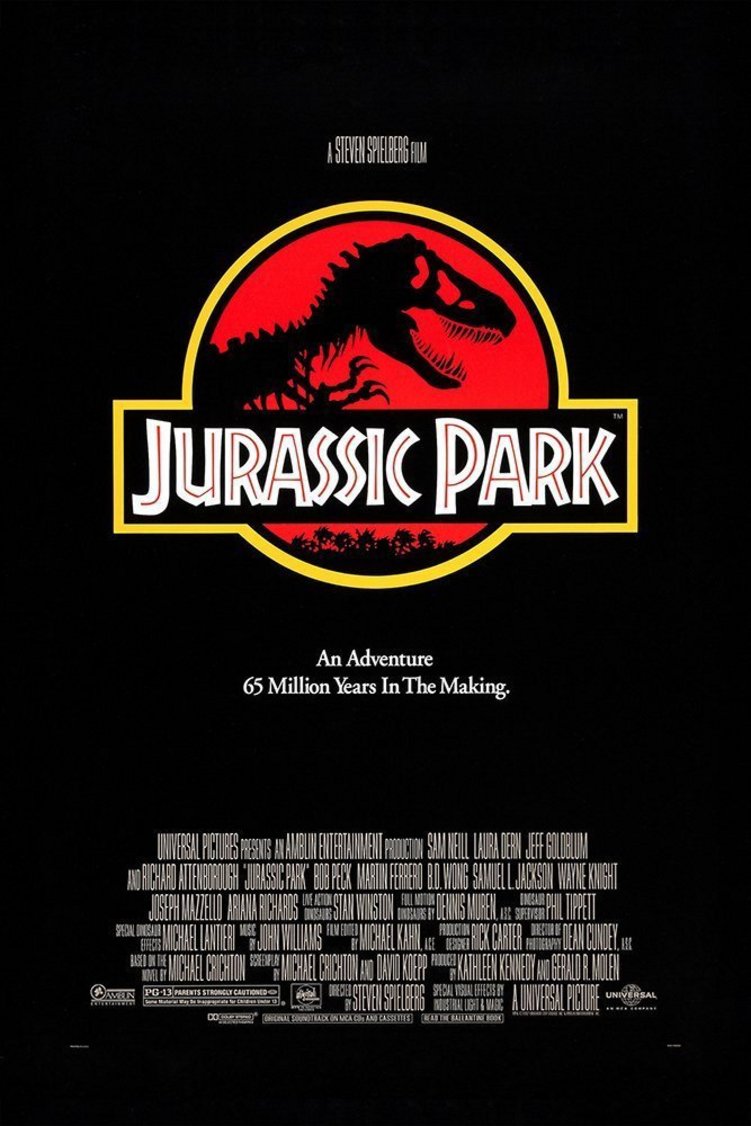
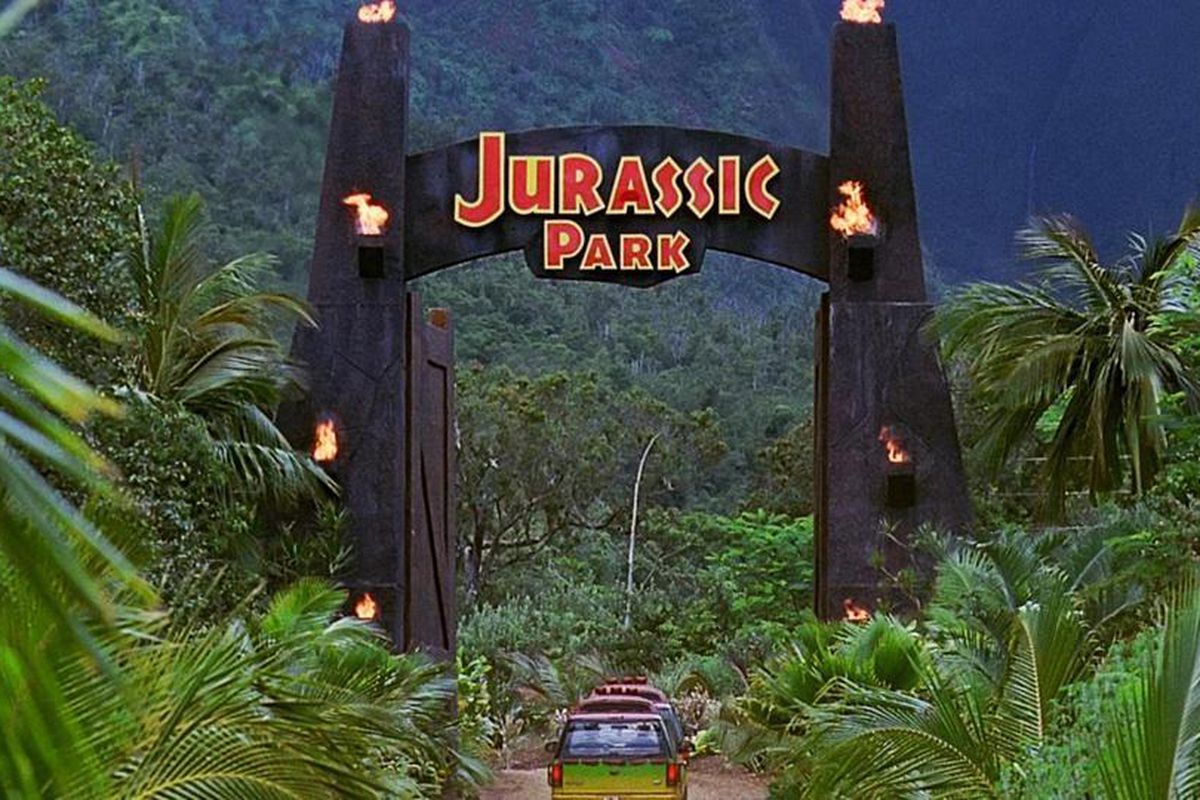
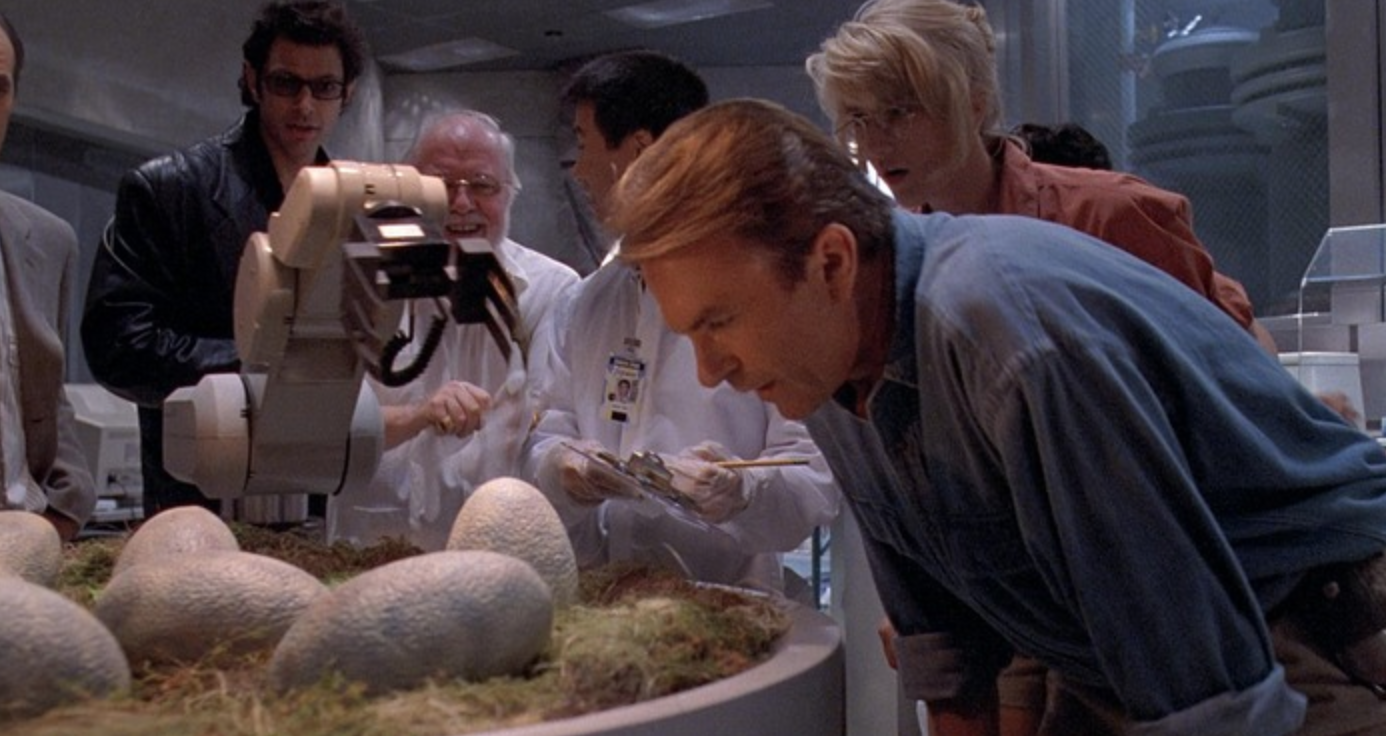
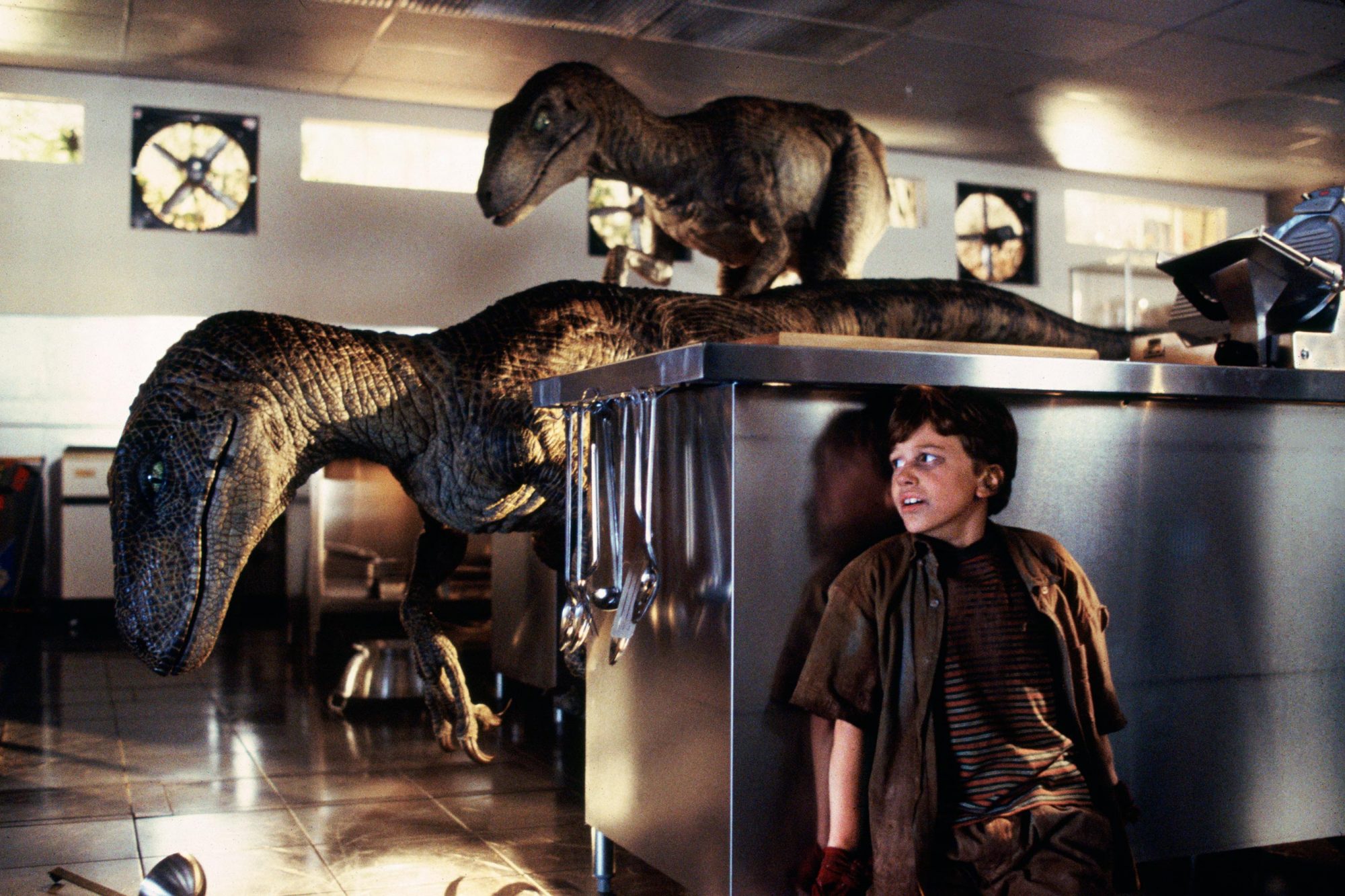
Jurassic Park has been a massively influential film since its release. A pioneer of CGI technology, Jurassic Park's amazing breakthroughs in technology have changed the face of film into what it is today; it was the highest grossing film for a period of 3 years; its theoretical underpinnings have inspired real- life science and discovery; and its cultural impact is immeasurable.
Jurassic Park pushed computer graphics to its limits in 1993. Originally intended to have stop-motion animation for its full-body dinosaur scenes, Spielburg was unhappy with the look of the animation – feeling it was too inorganic, and not realistic enough to truly capture the feeling of living animals. ILM took a risk and attempted fully computer generated images. The first test of this animation blew Spielburg away, and it was set in motion for the stop-motion scene to be replaced with CGI. This revolutionised the use of CGI in movies, and popularised the technology – directly inspiring the creation of Lord Of The Rings, A.I., and (more unfortunately) the Star Wars prequels.
Despite this, a vast majority of Jurassic Park’s special effects were actually practical, with Stan Winston Studios providing the animatronics and puppets that made up the stars of the show. From wearable raptor suits, to a life-size T. rex head-and-body animatronic for the iconic Breakout scene, Stan Winston’s animatronics really helped sell the magic of Jurassic Park’s Real Life Dinosaurs, and ground the CGI effects into a tangible reality. The use of puppetry and practical effects have also ensured that Jurassic Park stands the test of time – even as its CGI becomes outdated, there’s no arguing with the stunning effect of real props, hand-crafted with loving care.
Thanks to its basis in the real palaeontological science of the time, and the influence of Michael Crichton, who wrote much about the technologies of genetic cloning and splicing, Jurassic Park has been massively influential in the world of science as well as film. The film inspired a massive uptick in genetic science research, and kickstarted the field of de-extinction – bringing extinct species back, mostly through use of cloning techniques. Although this method is not viable for dinosaurs, it is being perfected for mammal species, such as the Pyrenean ibex – which briefly became the first ever “unextinct” animal.
Jurassic Park was also monumental in the “dinosaur revolution” of the 80s and 90s; specifically, it finally brought about a change in public perception, from people thinking of dinosaurs as cold-blooded, slow, stupid reptile-like animals, to warm-blooded, active bird-like animals, capable of being smart, fierce and deadly. Although modern perceptions lag behind in the 90s, failing to keep up with palaeontological discoveries of the 21st century, Jurassic Park caused a jump in public knowledge.
Jurassic Park also inspired a whole generation of children to pursue science, particularly palaeontology – what was once a quite niche subject now has hundreds of new young minds eagerly studying, discovering, and innovating in the field.
I first watched Jurassic Park when I was about 3 or 4 years old – young enough that I don’t have a specific memory of it. I remember picking it out of a VHS bargain bin, insisting that I wanted to watch it because there was a dinosaur on the front. After that, Jurassic Park formed a general backdrop to my life, something I genuinely don’t remember a time before. Alan Grant was a hero in my early childhood, and that’s probably where my interest in dinosaurs became interest in the field of palaeontology. Up to the age of 8, I was convinced I would be a palaeontologist, and used to show off my knowledge by spelling complicated words ('palaeontology', itself, was impressive for an 8 year old) and my knowledge of dinosaurs. Now, I have a BSc Honors degree in Palaeontology, which not only gives me opportunities to do work that I love, but is also just really fucking cool!
Sometimes I remember what a huge impact Jurassic Park, as a book and a film, has had on the world, and I’m amazed. It has been THE biggest influence on modern perceptions on dinosaurs - perhaps all of that is outdated now, and more harm than good to ever-evolving palaeontology, but at its time it was REVOLUTIONARY. And even 20 years later, if you say “Velociraptor”, it’s Jurassic Park raptors people think of (even if they are totally inaccurate and that fact kind of sucks).
But it not only influenced the casual public and media, but the world of science too. Jurassic Park was the first real suggestion of de-extinction and reviving extinct species through cloning and DNA reconstruction, something modern science is working to perfect. It even partially inspired Jack Horner, a leading palaeontologist, to try and recreate a dinosaur-type animal through reverse-engineering a chicken. Not to mention the countless people who, like me, were inspired by the film to take up palaeontology as a career or hobby. In my time at university alone, our degree course saw a jump in numbers from 13 students per year, to 30, to 70, to almost 100 - so much the department had to expand for the first time in years!
It’s just really amazing, that something I loved so much as a kid, and have continued to love throughout my life, is actually such a hugely influential piece of media in so many ways.
